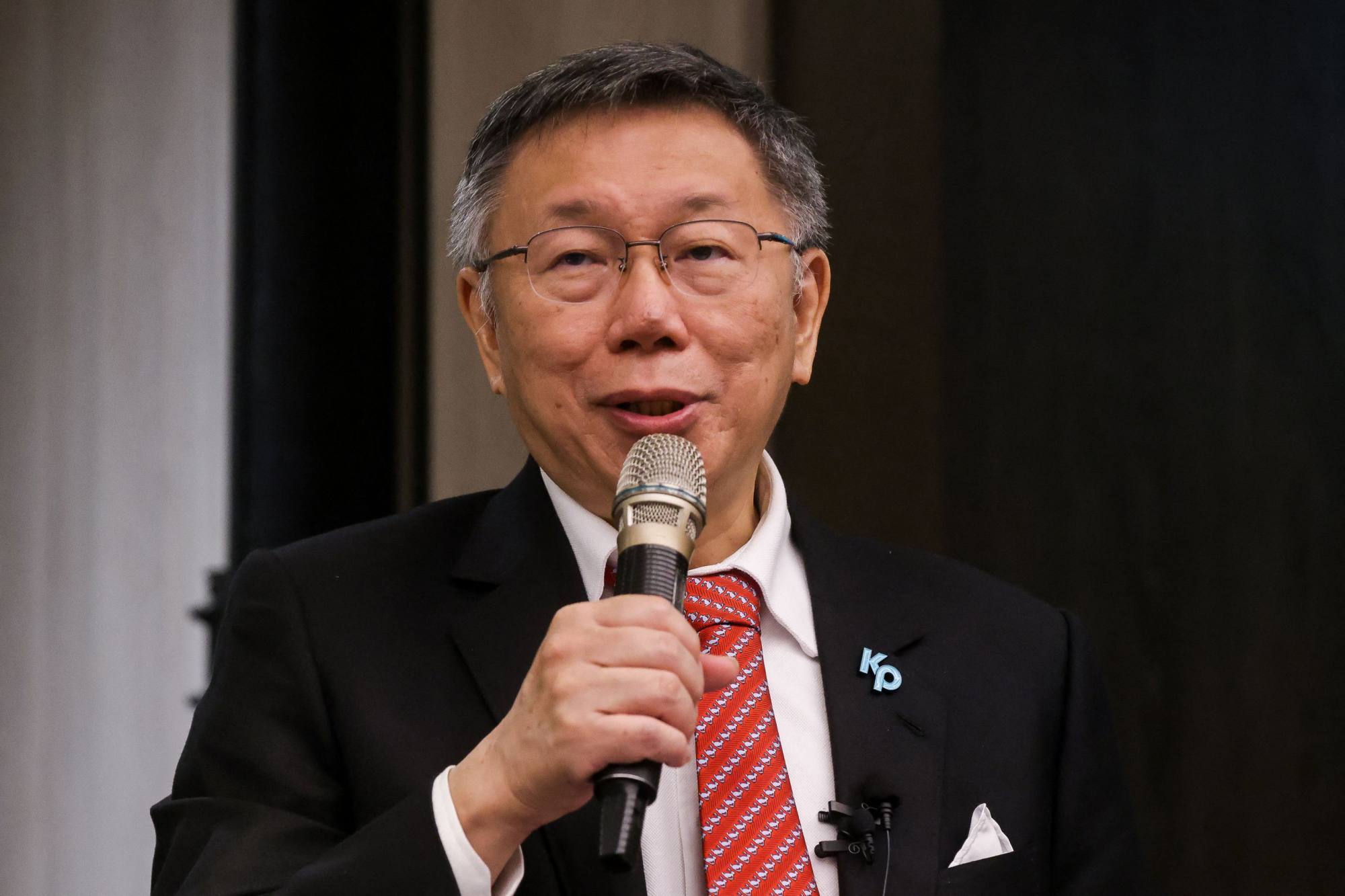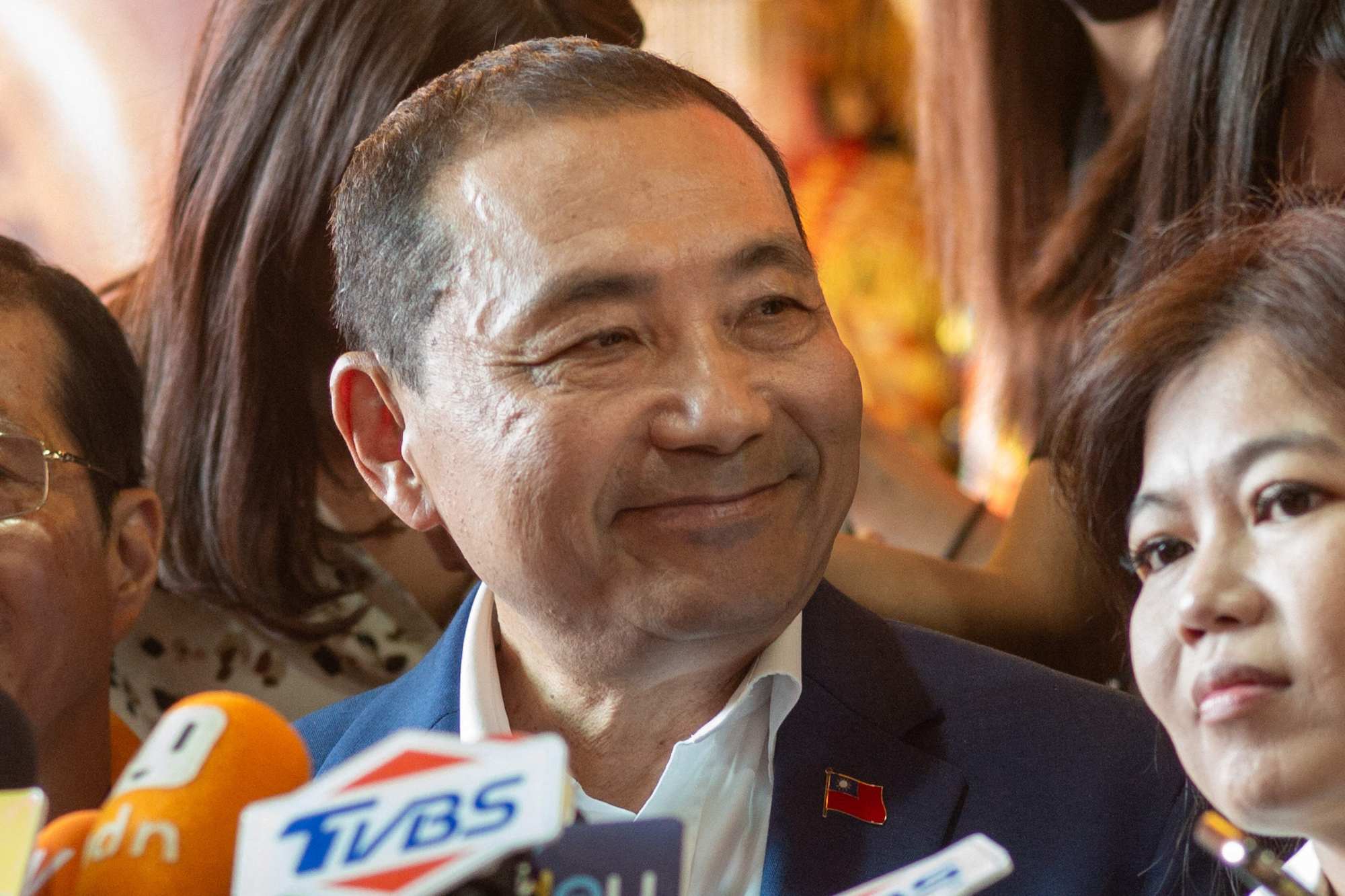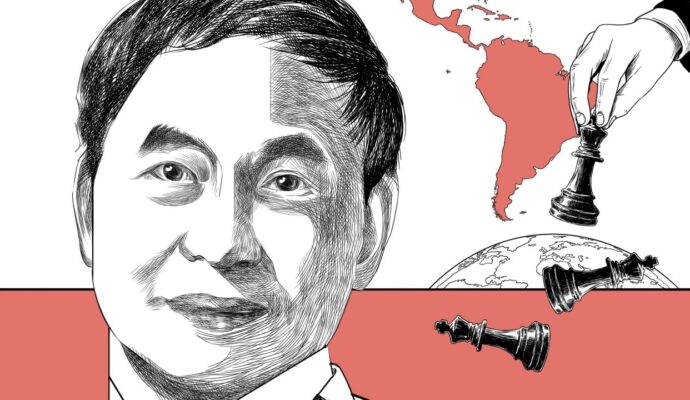Although the KMT, known as the blue camp, and the TPP, the white camp, have agreed to cooperate in the race, they have been unable to decide how to pick their presidential candidate and running mate.
Hsiao Hsu-tsen, executive director of the Ma Ying-jeou Foundation, said on Monday the former president supported the TPP’s proposal, believing that public opinion surveys are a fair way to decide the order of a prospective joint ticket.
Taiwan front runner Lai says Japanese support could help deter Beijing
Taiwan front runner Lai says Japanese support could help deter Beijing
“Polling [across Taiwan] has long been the methodology practised by the KMT and other political parties as it is the way most acceptable to the public,” he said, explaining why Ma supported the polling method.
This suggestion was rejected by the smaller opposition party, and earlier this month the KMT came up with another proposal that gave equal weighting between a cross-Taiwan poll on the candidates and the two parties’ support in the polls.
The TPP, however, insisted that polling from across Taiwan should be good enough as it is the simplest and fastest way to determine the order of the prospective ticket, given the approach of the November 24 deadline for presidential candidates and their running mates to register.
This means if the two parties are able to form a joint ticket, they must decide whether Hou or Ko will be the main candidate.

The TPP’s preferred method is seen as more likely to favour their candidate Ko – who has polled better than Hou in five opinion surveys he commissioned – whereas the KMT’s method is more likely to favour the larger party because it is likely to pick up more support across the island.
Hsiao said Ma was confident that Hou would be able to win support as the leading candidate, and that was why the former president supported the polling method.
He said most opinion surveys had found that only a “blue-white” joint ticket would be able to beat DPP’s Lai.
Can US and China give each other the reassurances they want on Taiwan?
Can US and China give each other the reassurances they want on Taiwan?
“Let’s face this reality,” he said, adding that those who opposed the partnership were “literally supporting Lai,” and those who asked Hou to run without a pact were “secretly helping Lai.”
In response, Hou said he respected the opinions of “everybody,” and hoped the two parties could “reach a conclusion as soon as possible.”
KMT chairman Eric Chu Li-luan also said he respected Ma’s proposal, which also has the backing of Han Kuo-yu, the party’s losing 2020 presidential candidate who still maintains sizeable support among hardline supporters.
“It is still a common goal of the KMT and TPP to oust the DPP in the 2024 presidential election,” Chu said, adding the two sides were still negotiating.

On Monday, Ko said he was willing to accept a poll not only comparing the support level between him and Hou but also comparing how a joint ticket headed by either Hou or him would fare against Lai and Hsiao Bi-khim. Hsiao, the island’s de facto ambassador to the United States, is seen as Lai’s favoured running mate.
The island’s presidential poll will be held on January 13 along with the legislative elections.

